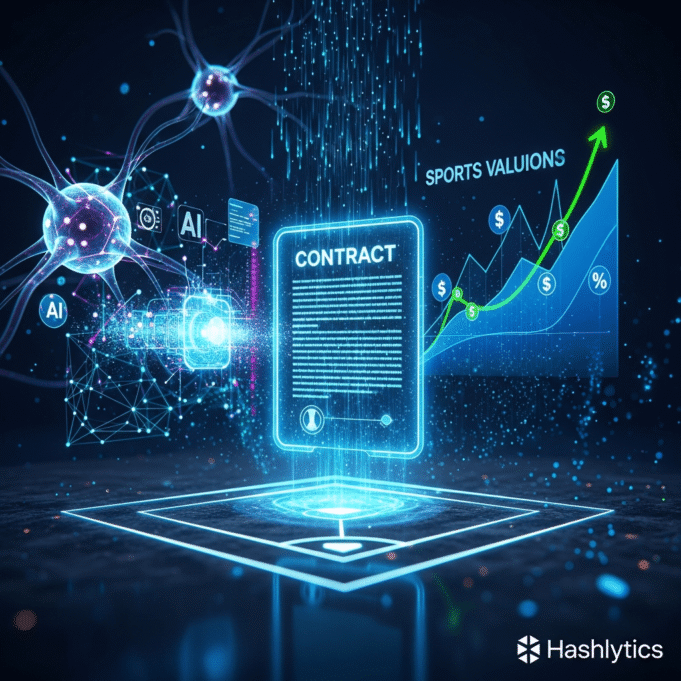Forget peanuts and Cracker Jack. The future of sports isn’t just about what happens on the field; it’s about what happens behind closed doors, where AI is rewriting the rules of player contracts. From predicting career trajectories to estimating commercial value, artificial intelligence is no longer a futuristic fantasy — it’s the new bargaining chip in a multi-billion dollar game.
Remember “Moneyball“? That was just the opening act. Today, every major professional sport has embraced analytics, shaping decisions from recruitment to fan engagement. But the age of spreadsheets is fading, replaced by machine learning models that can process oceans of data and unearth insights previously hidden beneath the surface.
Not just Data Analytics
Data analytics has become an indispensable tool in player contract negotiations. Where gut feelings and handshake deals once reigned supreme, data now dictates dollars. Metrics like Expected Goals (xG) in football, true shooting percentage in basketball, and telemetry data in Formula 1 have become the lingua franca of player valuation.
Players and their agents aren’t sitting on the sidelines either. They’re hiring their own data analysts to benchmark their worth against their peers, identify teams or leagues where their playing style will thrive, and ultimately, maximize their earning potential. It’s a data arms race, and everyone’s loading up.
From Moneyball to Machine Learning
The rise of AI in contract negotiations isn’t without its challenges. Legal and ethical questions loom large. How do we ensure fairness and good faith when algorithms are calling the shots? What about privacy concerns related to athletes’ biometric and performance data?
One sector-agnostic risk is the replication of bias in training data. Athletes are increasingly demanding guarantees that their personal information won’t be misused and advocating for guardrails to ensure fairness and prevent bias in the negotiation process. Regulators, in turn, must adapt to these new realities and establish clear rules on accountability in the use of personal data. Clear guidelines preserving fairness, avoiding bias, and protecting personal data will be crucial for building trust between players, sports organizations, and fans.
The evolution from “Moneyball” to machine learning represents a seismic shift in the business of sport. While data analytics empowered athletes to showcase their worth and teams to make smarter decisions, AI is taking things to the next level, offering predictive insights and negotiation tools that can model performance, return, and risk with unprecedented accuracy.
When AI models are deployed with input from all stakeholders and in line with established guidelines, there’s an opportunity to create a negotiation environment where athletes, sports organizations, and sponsors are better informed, enabling them to strike fair, future-proof deals that reduce uncertainties and optimize efficiencies. As highlighted in this report, this trend will reshape the balance of power between players, agents, and sports organizations, transforming contract negotiations into evidence-based, forward-looking agreements where value, risk, and opportunity are better understood.




